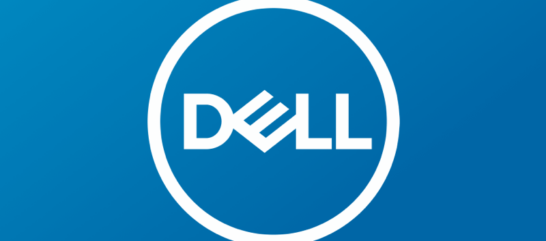When you hear the term “marketing,” you likely think of marketing to customers and trying to persuade them to purchase your product or service.
But employee marketing — selling the company, its values, and mission to your people — is an essential part of employer branding today.
After all, they’re important stakeholders in the organization. Plus, they have far more influence over customers’ opinions than your marketing team since people have greater trust in what employees have to say.
Read on to learn more about employee marketing, why it matters, and how to get it right.
What is Employee Marketing?
Employee marketing, which is also known as internal marketing, is essentially marketing your company to one its most important groups: the workers themselves. This involves not only full-time, in-office desk workers, but also part-time employees, frontline workers, contractors, remote employees, partners, and more.
Internal communication is core to effective employee marketing because it keeps everyone informed and aligned on company objectives.
But employee marketing is about more than just ensuring everyone knows what the company stands for and works toward — it’s also about getting your people excited about the brand so they can be true employee influencers.
Employee Marketing Benefits
The world’s top companies prioritize employee marketing because when you get it right, the organization reaps numerous benefits. Just take a look.
Higher employee engagement
When you effectively market the company to its employees, it increases buy-in for the organization’s programs and goals, as well as drives genuine enthusiasm for its products or services.
And when your people value their roles, are proud to work for you, and believe their work contributes to the company’s success, you’ll have employee engagement skyrockers.
Engaged employees boast numerous benefits of their own that go hand in hand with the benefits of employee marketing, including more employee motivation, higher productivity, improved employee empowerment, and more loyalty to the company.
Improved customer experience
Regardless of whether an employee works directly with customers, their experience directly influences the customer experience.
Because when your people have what they need, they’re happier, more confident, and motivated. In other words, they simply do a better job.
So it’s no surprise that 80% of consumers say they’d prefer to do business with companies that treat their employees well and took excellent care of them during the pandemic.
Better company culture
Your company culture is a key part of your employer brand that helps attract top talent and activate employee influencers.
Employee marketing plays an important role in this because when the organization effectively communicates and markets itself to its people, it generates a culture of happy, motivated workers.
Increased productivity and higher profits
Companies with happy, engaged employees that are invested in the brand and aligned toward common goals are also more productive overall.
In fact, these organizations experience 17% greater productivity, according to Gallup. And a McKinsey Global Institute poll found that productivity increases 20% to 25% in companies with connected employees.
And when your people are committed to company goals and working harder and better, that’s great news for your bottom line.
Calculate Your Employee Advocacy ROI 📈
Get a custom, shareable report highlighting the ROI you can expect to generate from employees sharing and creating content.
Better employer brand
If you haven’t noticed the trend already, all of these employee marketing benefits boil down to one important pro: an awesome reputation as an employer.
And when you have an excellent employer brand, you reap all kinds of rewards, including higher-quality applicants, better profits, and more.
In fact, when deciding where to apply for a job, 84% of people say that the company’s reputation is important. And 96% of companies believe employer brand and reputation can positively or negatively impact revenue.
More effective employee influencers
Your company’s best brand advocates are its employees. After all, who knows the organization and its products or services better than the people who work there?
Plus, as we touched on before, people — including customers, prospects, and job applicants — are far more likely to trust content shared by employees over that shared by brands. Seventy-six percent of them say so.
Not only are employees more trusted brand ambassadors, but they also have greater reach. In fact, they help increase your company’s reach by more than 500%. That’s the power of employee advocacy.
5 Tips to Do Employee Marketing Right
Now that you understand just how important employee marketing is, let’s take a look at some important components in an employee marketing strategy.
1. Educate employees about the company mission and values.
Your company mission matters — even more than salary, according to a Glassdoor survey — so ensure your people know your mission, your organization’s values, and how their actions contribute to these important things.
Company values should be an integral part of the culture that are communicated everywhere from the company website to its onboarding practices.
2. Prioritize internal communication.
As stated previously, communication is essential to effective employee marketing because if people aren’t informed, not only are they disconnected from each other and their roles, but they’re also unable to perform their basic job duties.
That’s why it’s imperative to develop an employee communications strategy that unifies your team across departments and keeps everyone from the intern to the CEO on the same page.
3. Ask people what they want and make it easy to provide feedback.
Why do most employees quit their jobs? Because they find their work uninspiring, according to a study by Peakon.
Avoid this common downfall — and find out exactly how you can keep your people happy and inspired — by making feedback a core part of company culture.
This can take the form of regular employee surveys, a virtual suggestion box that lets people ask questions and make recommendations at any time, and more.
4. Share employee stories.
Storytelling is an essential part of modern marketing, but you don’t only need to be telling your brand story — you also need to share your people’s stories.
So talk to your people, highlight their achievements, publish them on your careers page, share them on social media and more.
Employee stories are about so much more than just marketing the company to its current workers though — they also reach customers, prospects, and future hires.
5. Align internal and external marketing.
Finally, ensure the messages you share as part of your employee marketing match those you’re sending to those outside the company.
This consistency is key to avoid confusion among employees, as well as to maintain the organization’s integrity.
Let Us Improve Your Employee Marketing
Ready to invest in employee marketing as much as you do your company’s external marketing?
EveryoneSocial, the leading advocacy solution that turns your employees into influencers, is here to help. Create an internal hub of content and information that lets employees comment, interact, and share to their social networks.
















